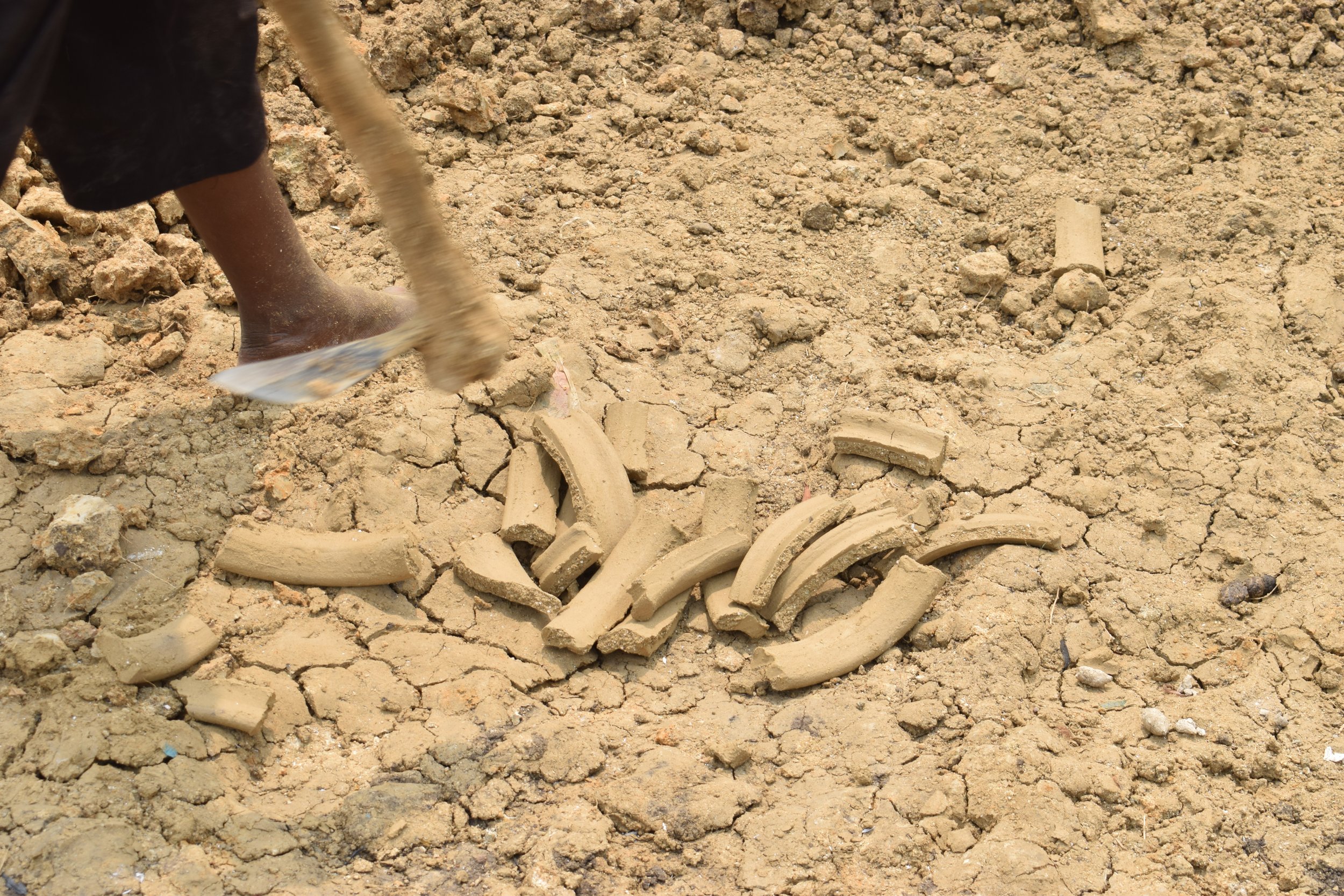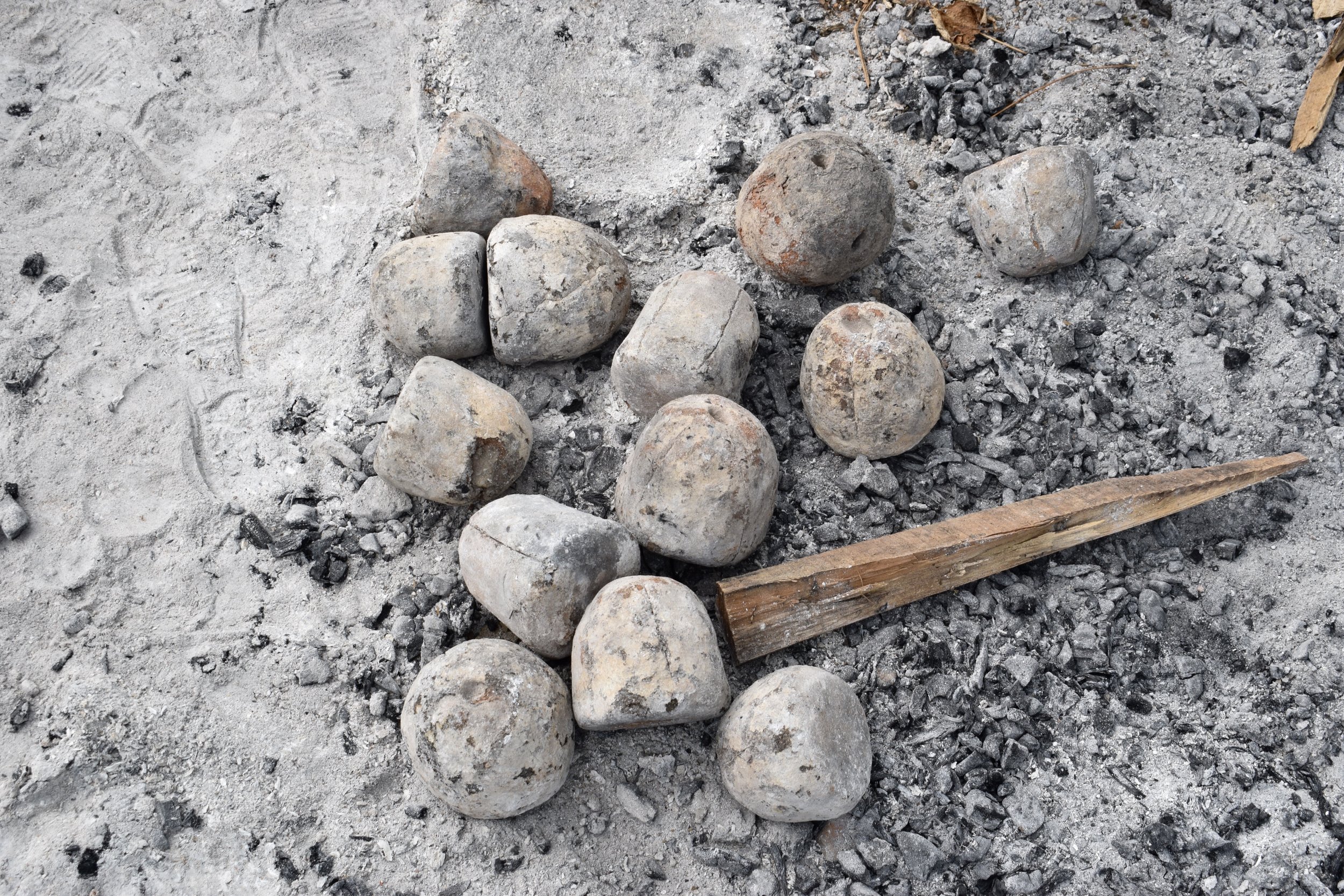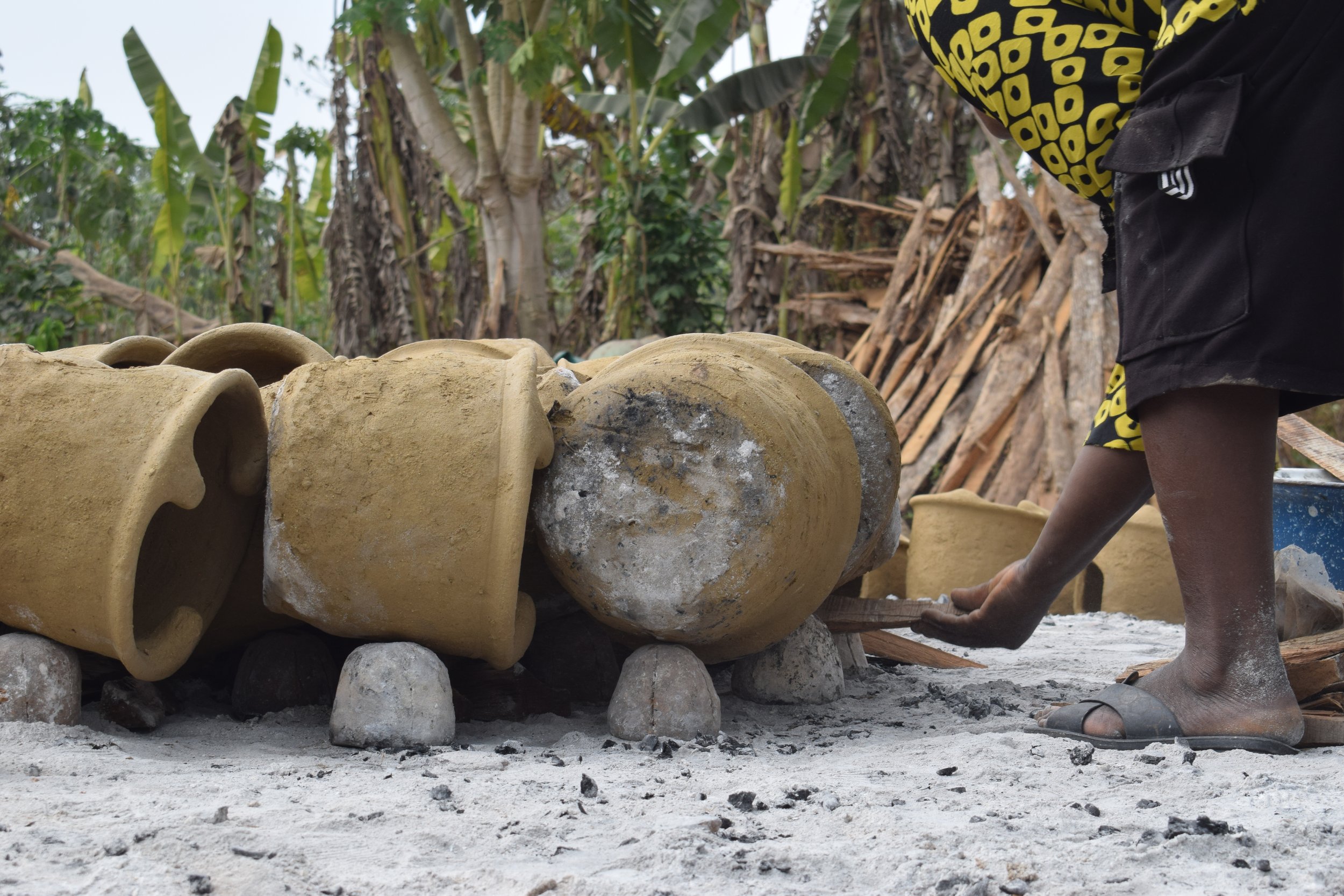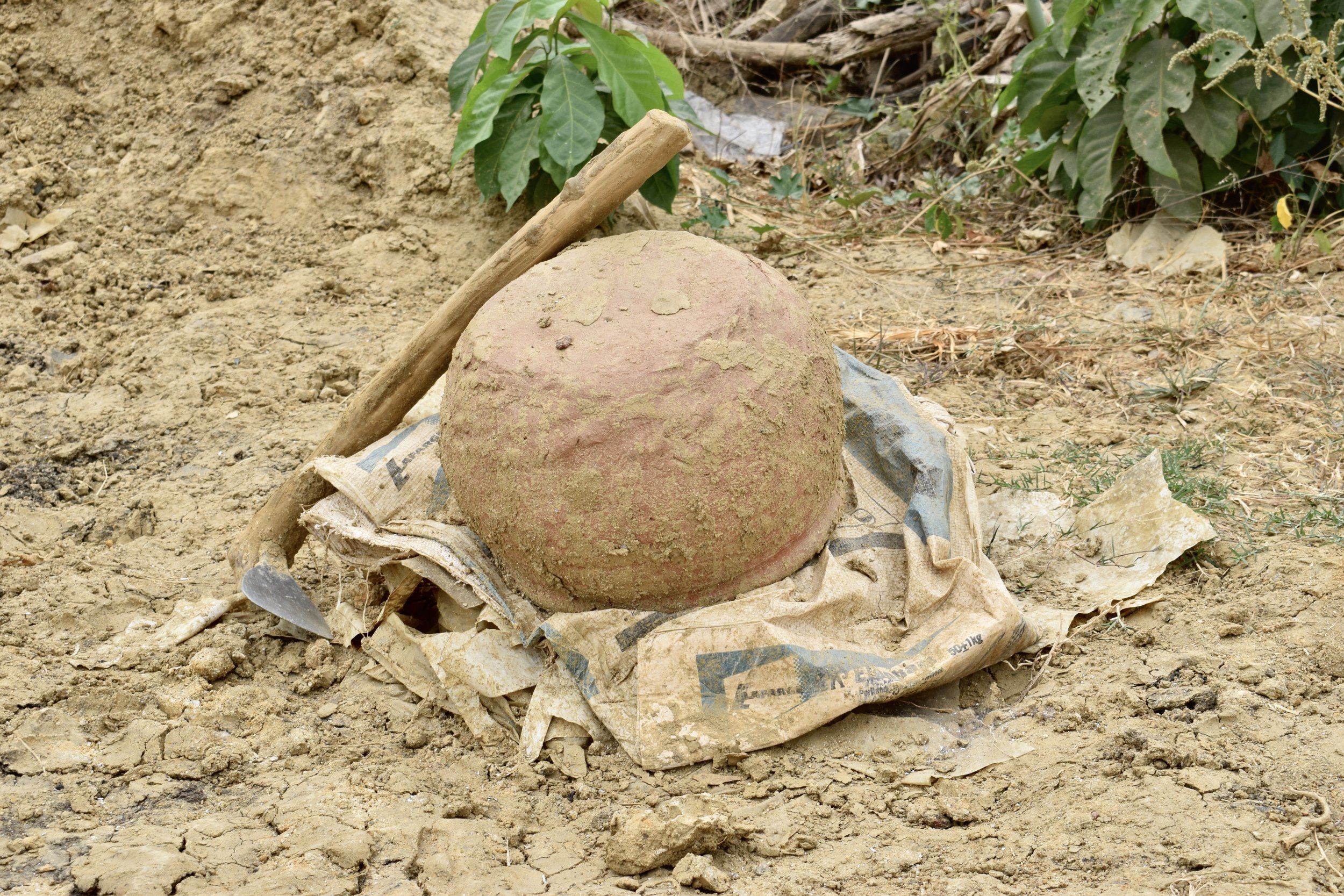Obinrin àmó
Obinrin àmó (clay woman in Yoruba) is a multi-sensorial archive of my time at the pottery community in Ìganran (Yorubaland) as part of my residency at G.A.S. Foundation.
Yoruba translation available here.
Obinrin àmó
〰️
Obinrin àmó 〰️
1
A word: Àná (yesterday)
The pots of today will have to wait to continue changing
Àná does matter in order to keep producing.
A tool: Ewé Móra
Móra tree leaves used to smoothen the rims.
Generational wisdom:
A feeling:
As the price to pay for my time with these women potters and the clay I’m buying is being negotiated, I wonder —
What is the value of a craft?
Of a trade, a skill and a lifestyle passed on generation after generation for centuries?
They don’t even know when it started. They hope that, as the younger generations now go to school and university to study, they will still make for generations to come. For they are still learning.
How could one not? How could one ignore the piles of pots?
The clay the Earth has gifted them with. Soft yet strong. A dream to work with.
Ochre soil that fire turns into red. 10% of their pots crack.
For fire has no mercy. A fire I hope to see on Sunday.
Pots for rituals, for Agbo (herbal concoction). Charcoal pots. Piggy banks, bowls and lids and ashtrays.
They do make new designs when the client asks for it. Otherwise, traditional shapes are in charge.
As I sit to make, I feel at home.
Again.
Again another remote village where the language of clay brings me close to strangers.
Where I feel like I belong.
2
A word: Ina (fire)
Our prayers to ina to bring us success.
Fire almighty be blessed.
A tool: Ogbo
Fired clay props. The first layer of pots are lifted so that wood can go underneath without them getting burnt.
Generational wisdom:
A feeling:
I had seen the scene in books.
I had never seen it in person.
Pottery firings are beautiful. Magical.
But not just because of the fire itself. The flames giving a new life, an eternal life, to the clay pots.
It is the loading. The engineering of the set.
A perfect method to get all pots fired, none burnt.
Today, it is the mission of two women who are helped by different young people, as well as other women who contribute to it by fetching wood and pots.
Two women.
15 days of making.
Hundreds of pots they only count afterwards. Once they know what has been lost to the flames.
3 hours of loading; 30 minutes of wait.
We miss the end as the sun is setting and we must go.
We leave them removing the wood that has not fully turned into ashes yet.
The air is hot.
The women probably exhausted.
Red pots that once were ochre wave us goodbye.
O daaro. Good night.
INTERLUDE: 10 things I love about fire
The way it dances
Its heat
The colours changing depending on the amount of oxygen
How photogenic it is
How food cooked with fire tastes different, tastes better
Winter in the Pyrenees
My dad’s roasted potatoes and chorizo fired in our fireplace in Panticosa
Being an Aries
How intimacies are shared around it
How it turns clay into ceramics
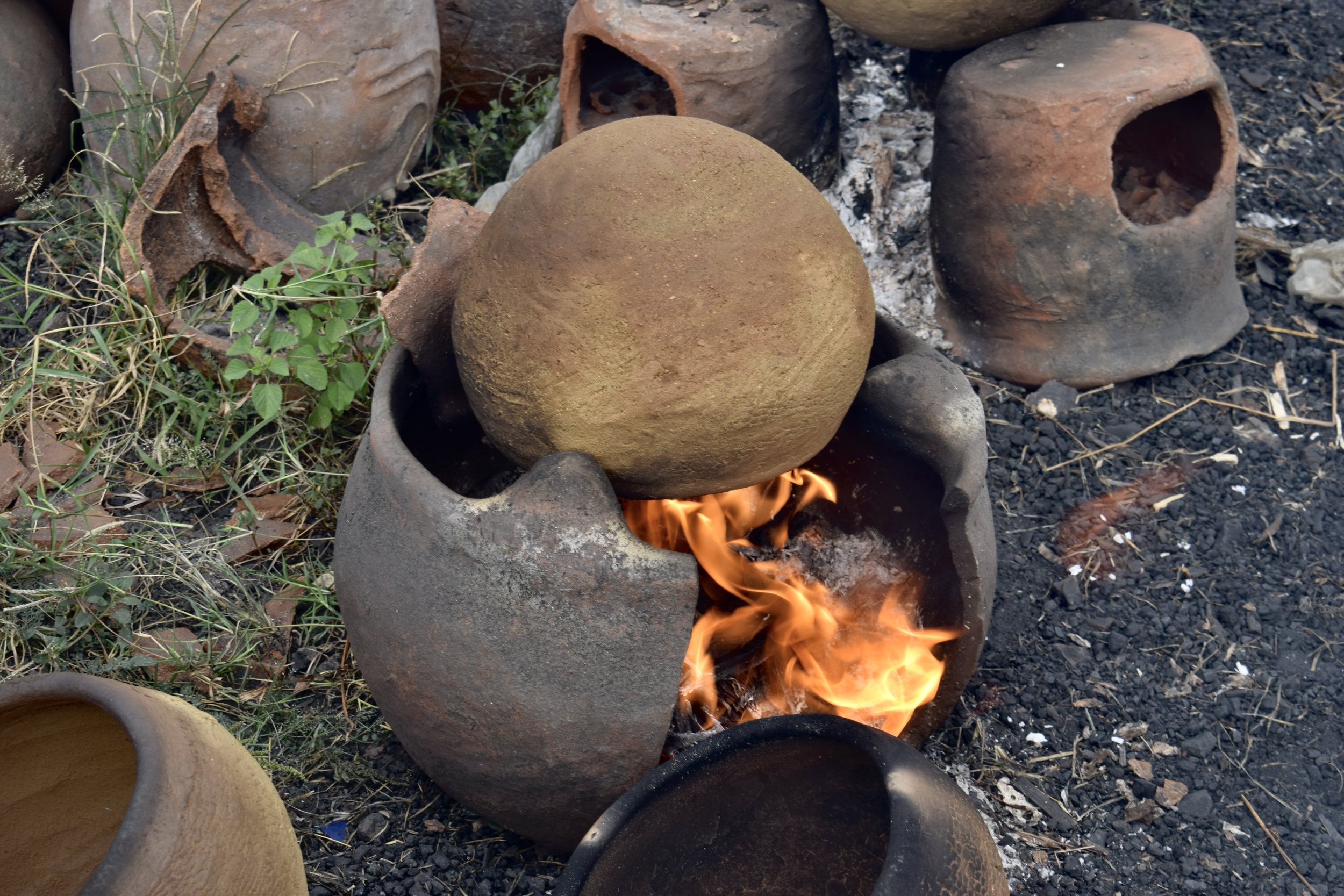
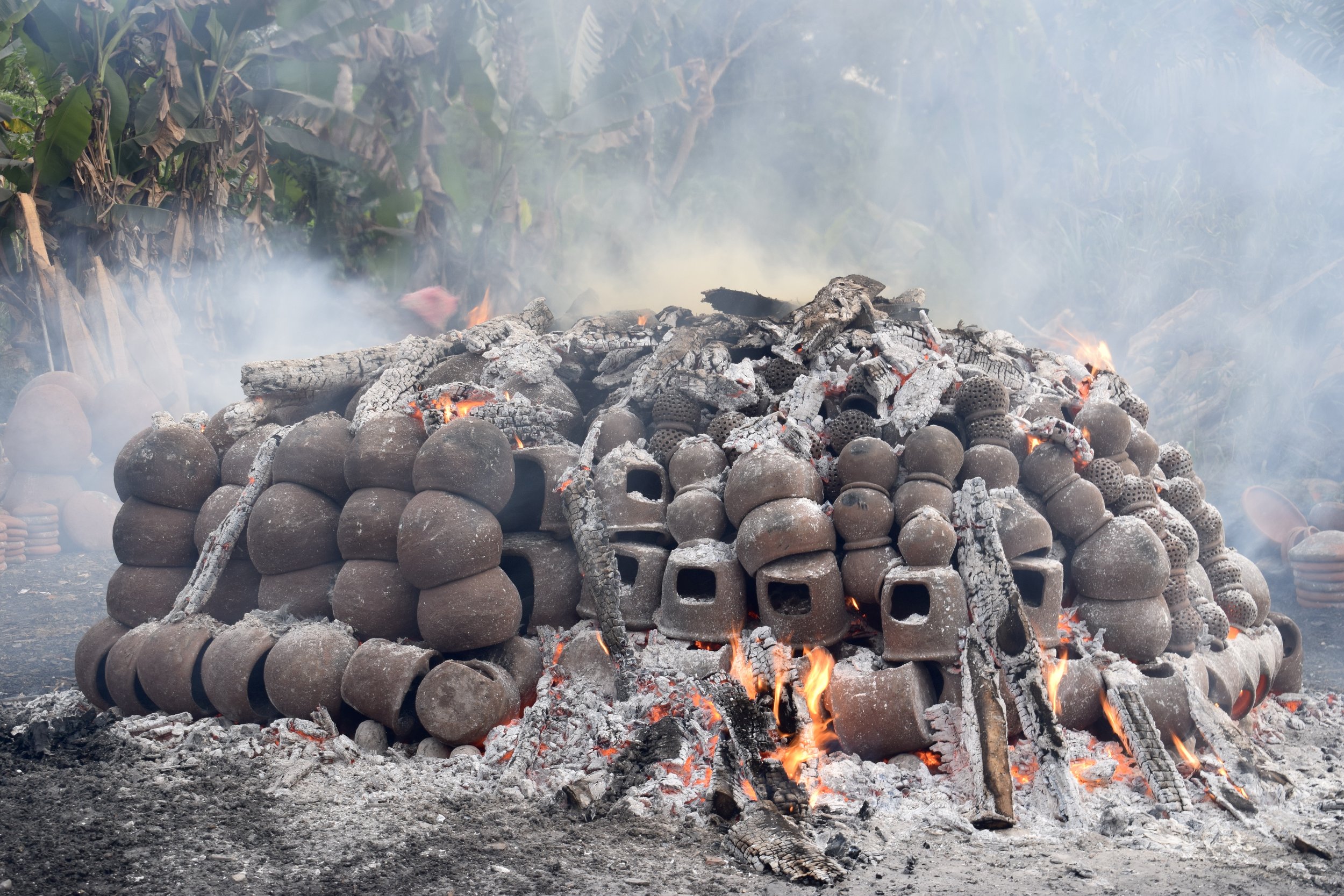
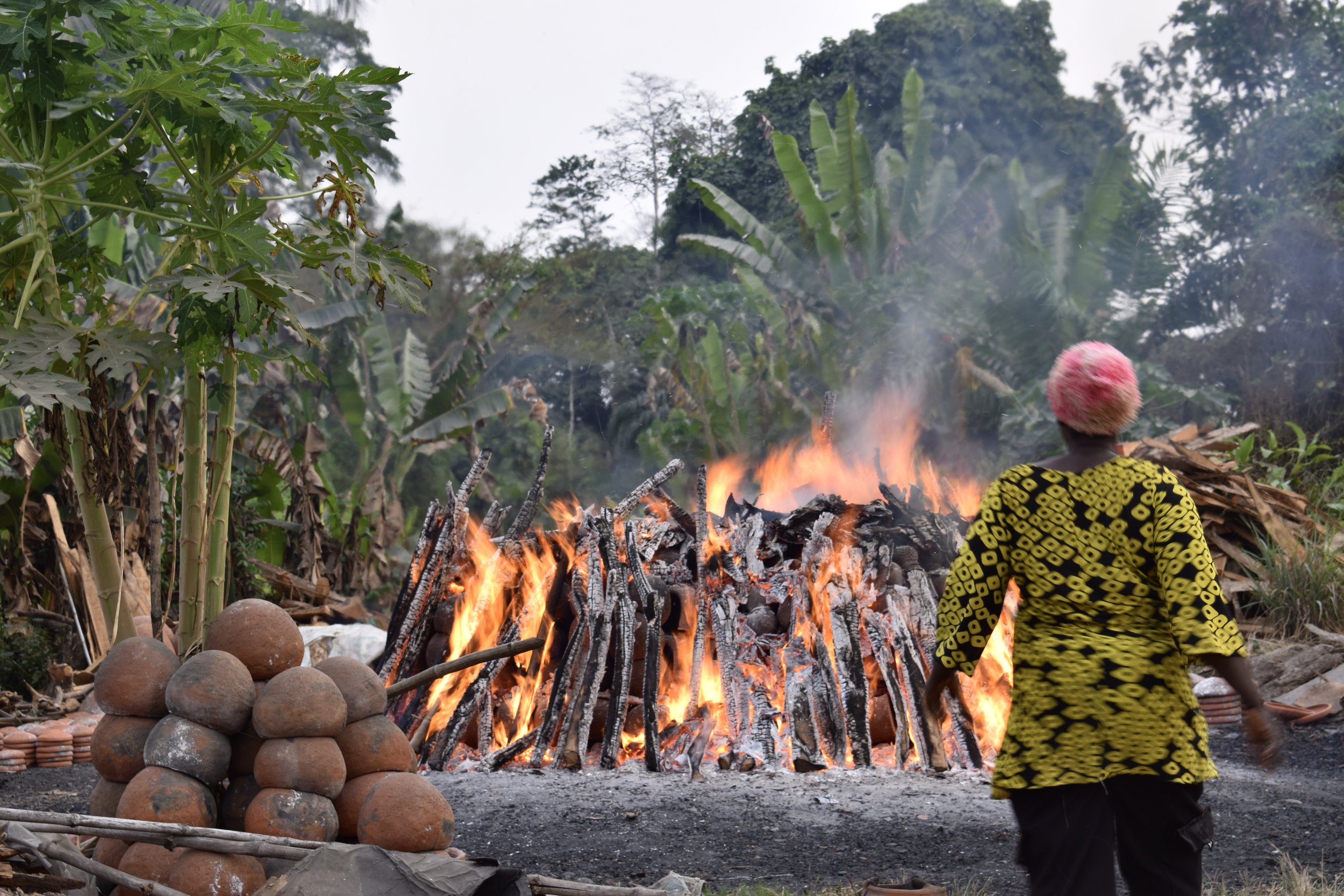
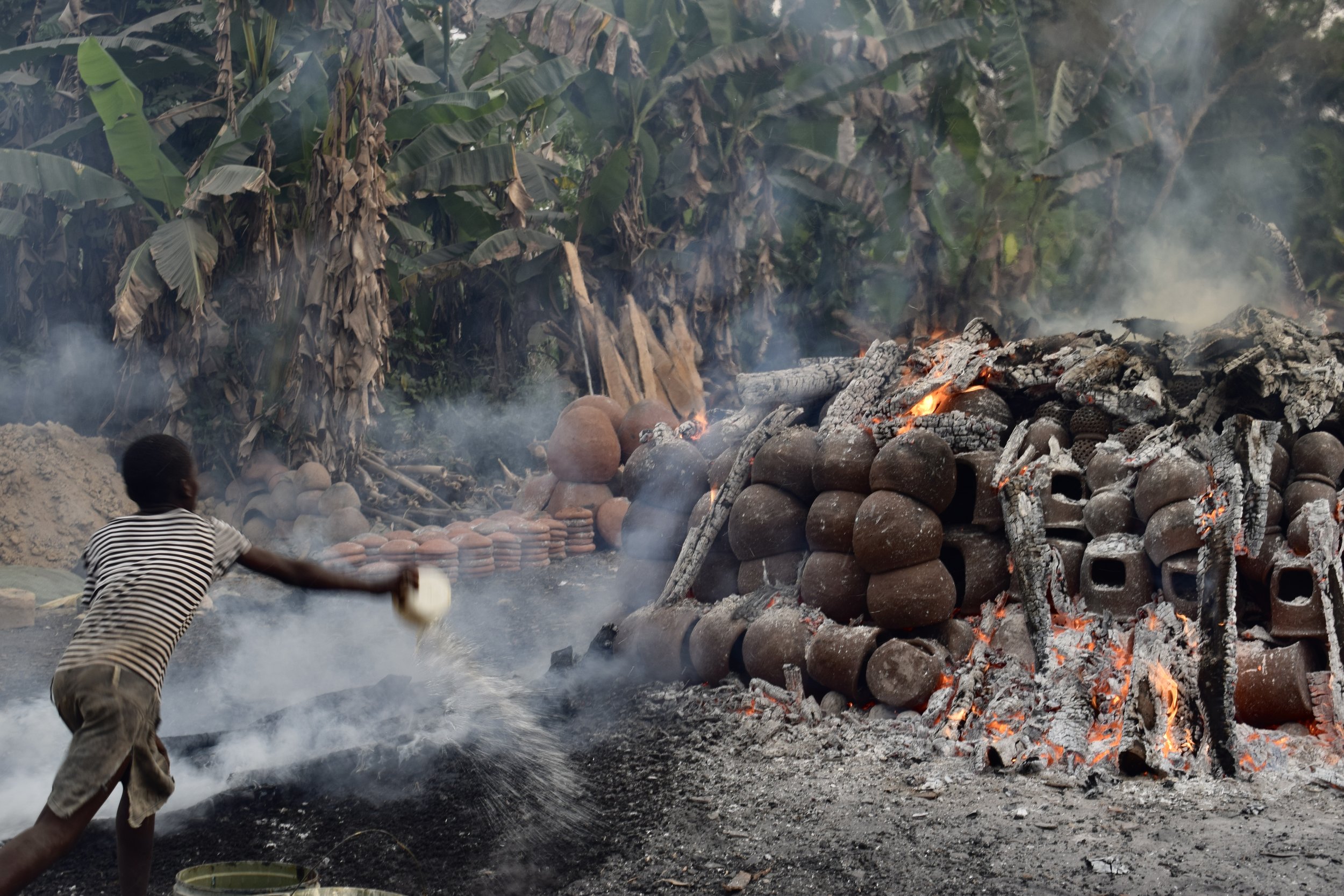
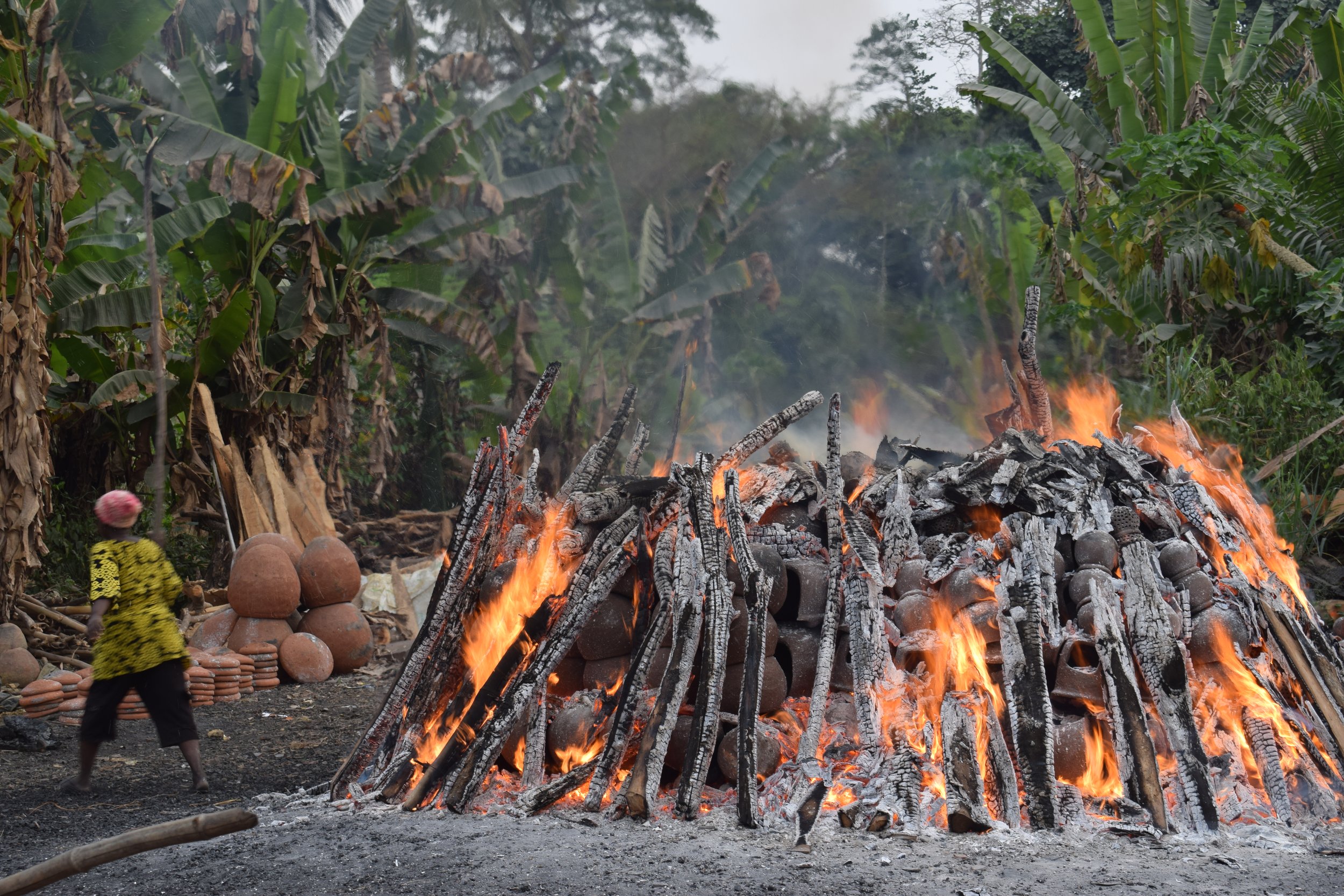
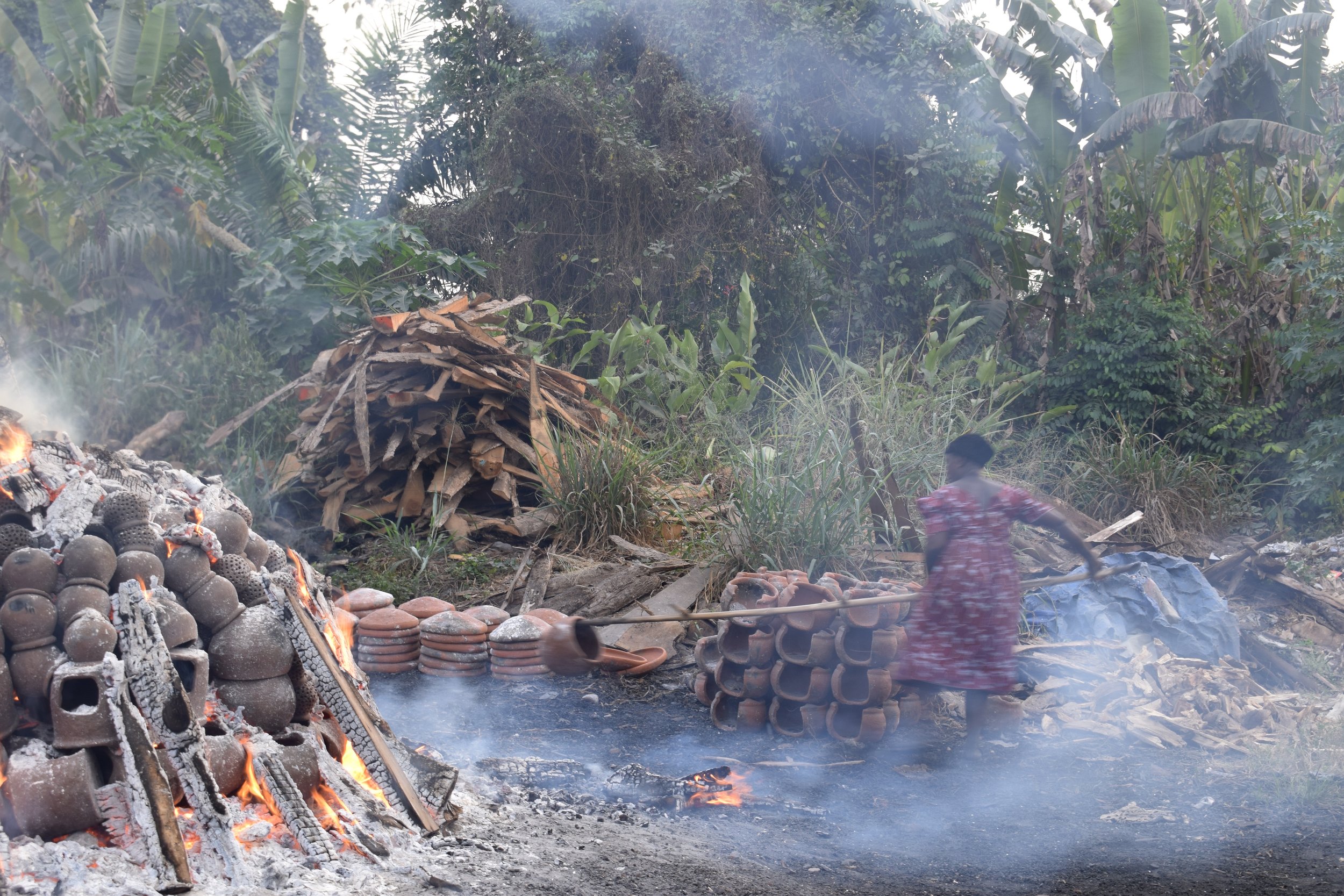

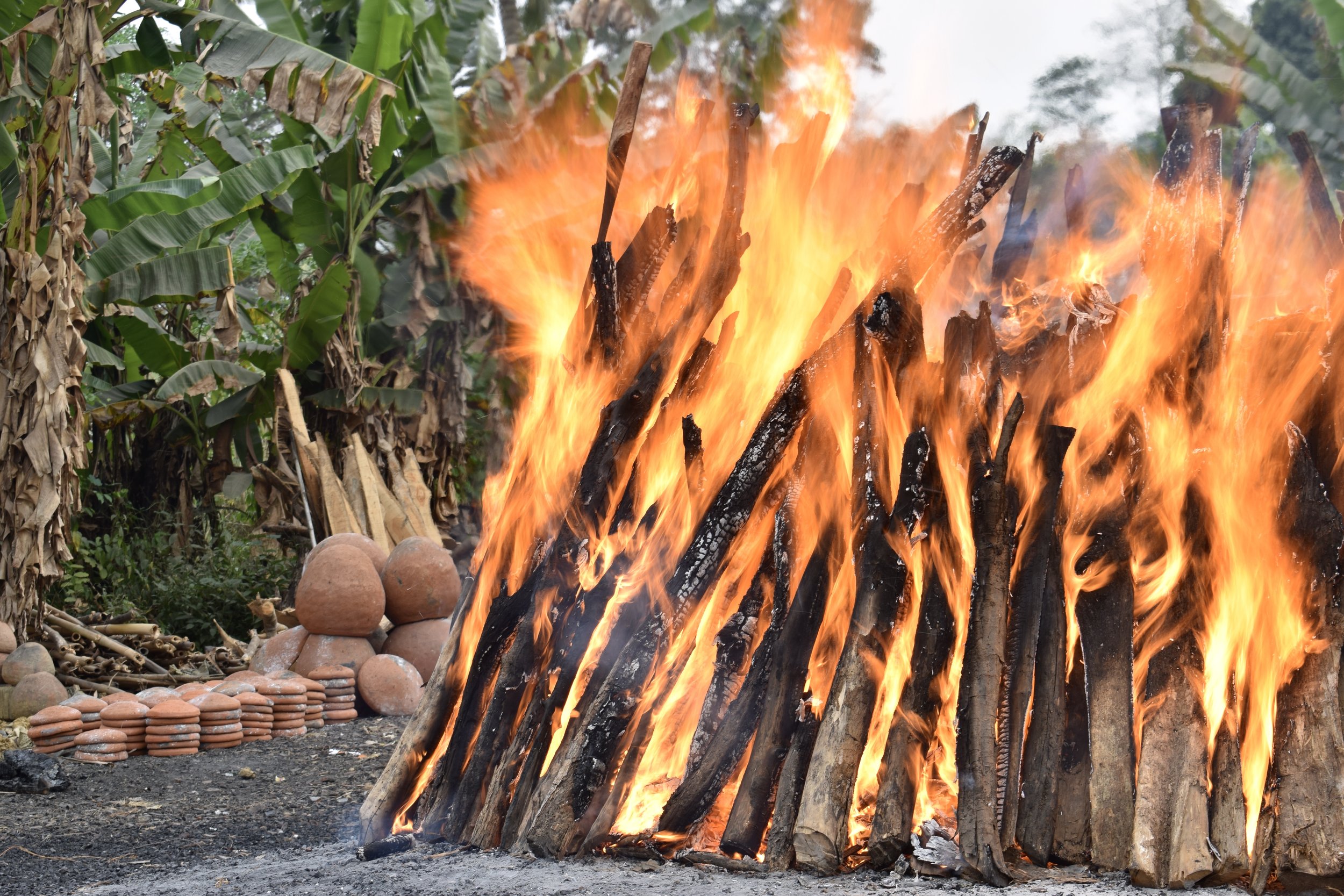
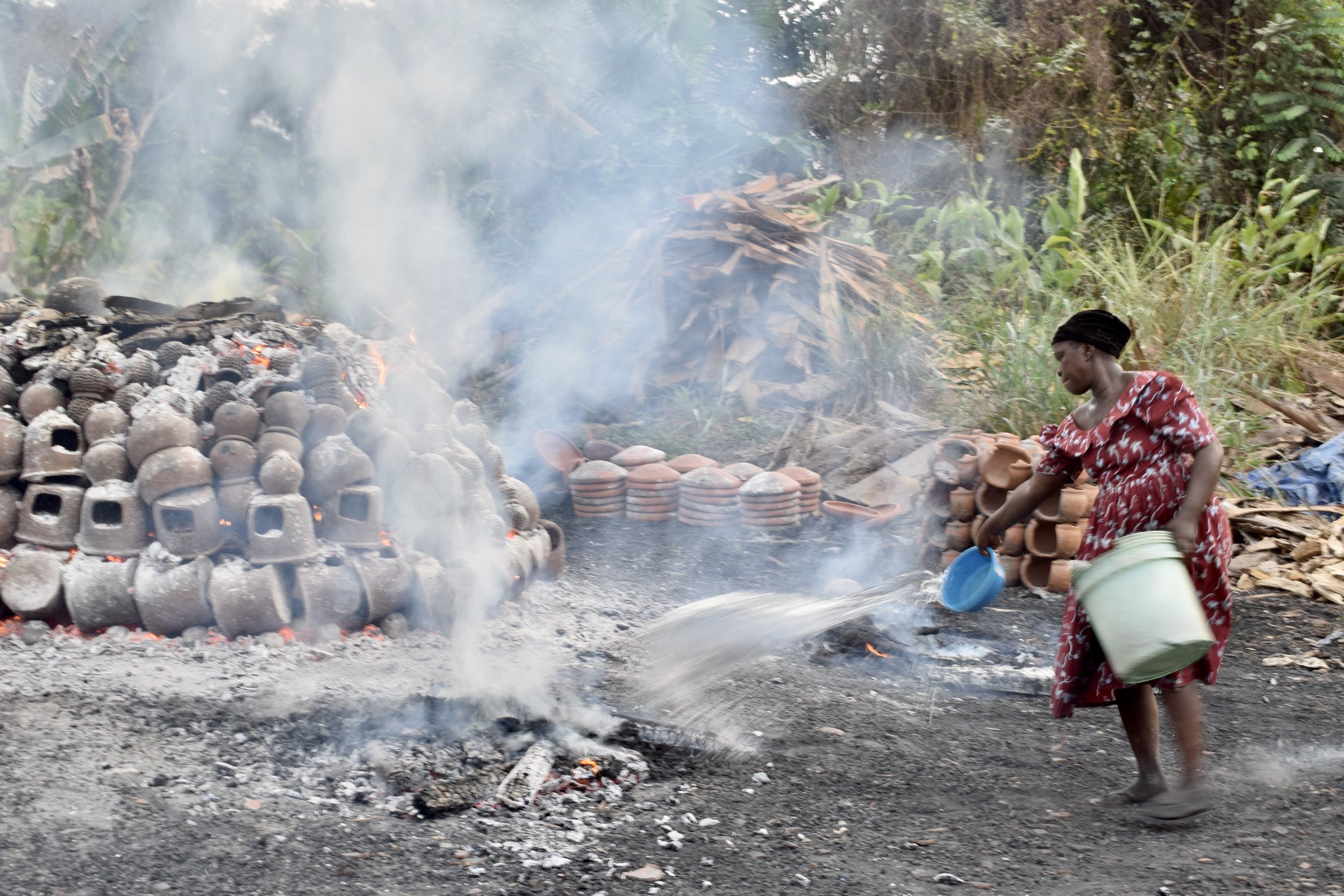
3
A word: Àmó (clay)
A source that never seems to run out
keeping their practice alive.
A tool: Ọkọ́
A bit smaller than the regular hoes, used to dig the clay and help in the first stages of mixing the clay with water.
Generational wisdom:
A feeling:
A tough task under the sun.
My arms burnt both inside and outside.
Yet they digged with so much ease.
”It isn’t easy” one of them shared.
I’ve always said one of my favourite things about working with clay is the direct connection to the hand.
An intimate conversation.
Today, my feet felt it too.
I started digging with my shoes on, while the women were barefoot.
I was jealous of them.
I also wanted to feel the clay.
So as we were making it wetter and wetter, it had to be done.
And oh! Did it feel good!
4
A word: Ọwọ́ (hand)
Not to be confused with owó (money)
These women’s hands are more precious than gold.
A tool: Ọparun
Bamboo sticks used to trim and smoothen the surface of the pot on the outside after coiling.
Generational wisdom:
A feeling:
I wouldn’t get bored of seeing those hands at work.
We come, sit down,
admire, absorb.
The weather allows for a fast making pace
They make the most of the heat ahead of the soon-coming rain.
20 pots perhaps she made today.
The ritual, the dance — herself and the clay.
CLOSURE: Ọjà Ọba
The Queens’ Market
Pots waiting for the buyers to come / The sun enhances the reds / which blend with the road / The dust lifted by the passing trucks / kissing the vessels’ hot skin / As we arrive, a car full to the rim with vessels is leaving Iganran / Business done / No need for market research, socials or selling strategies / The pots speak for themselves / as for centuries they have done
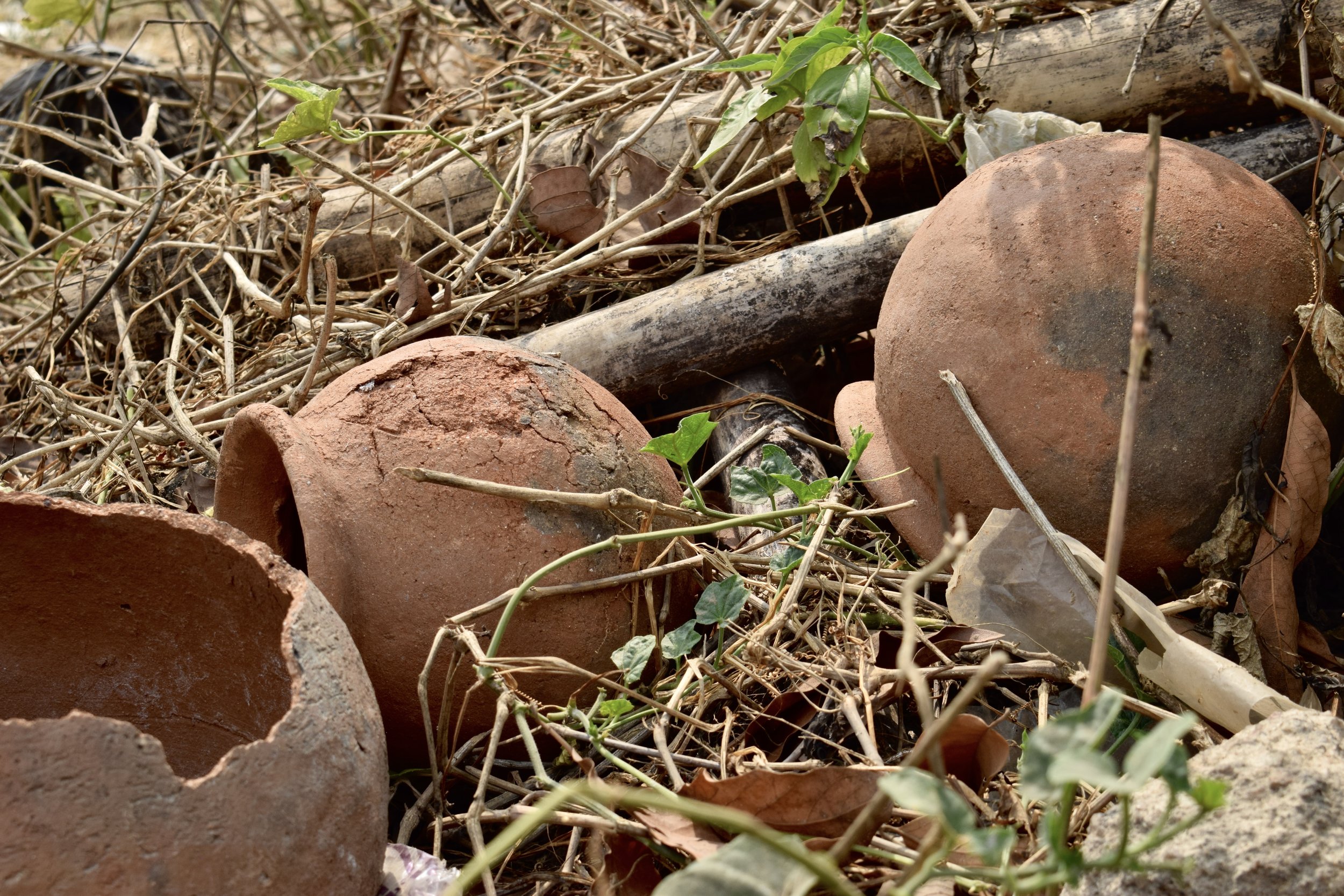
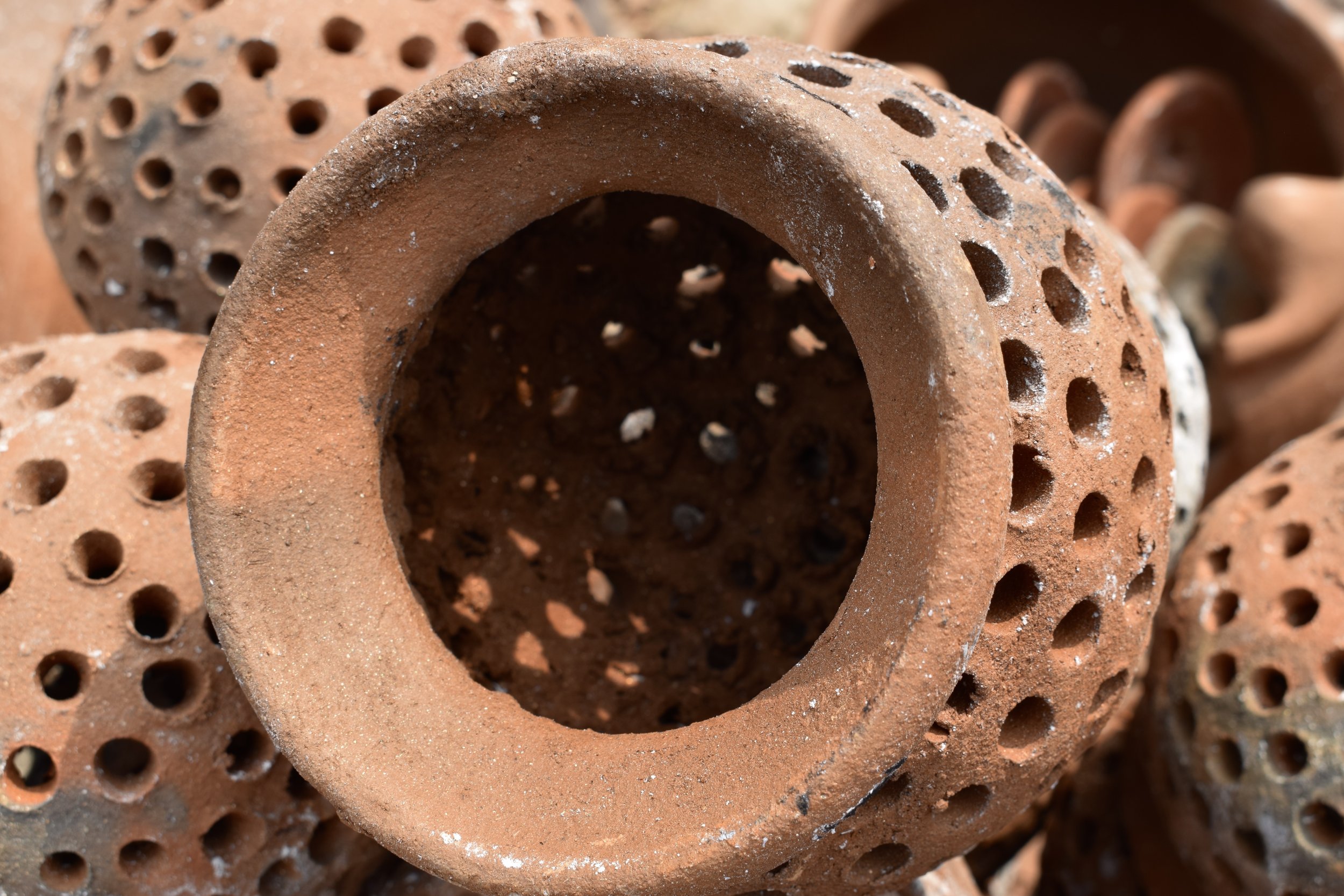
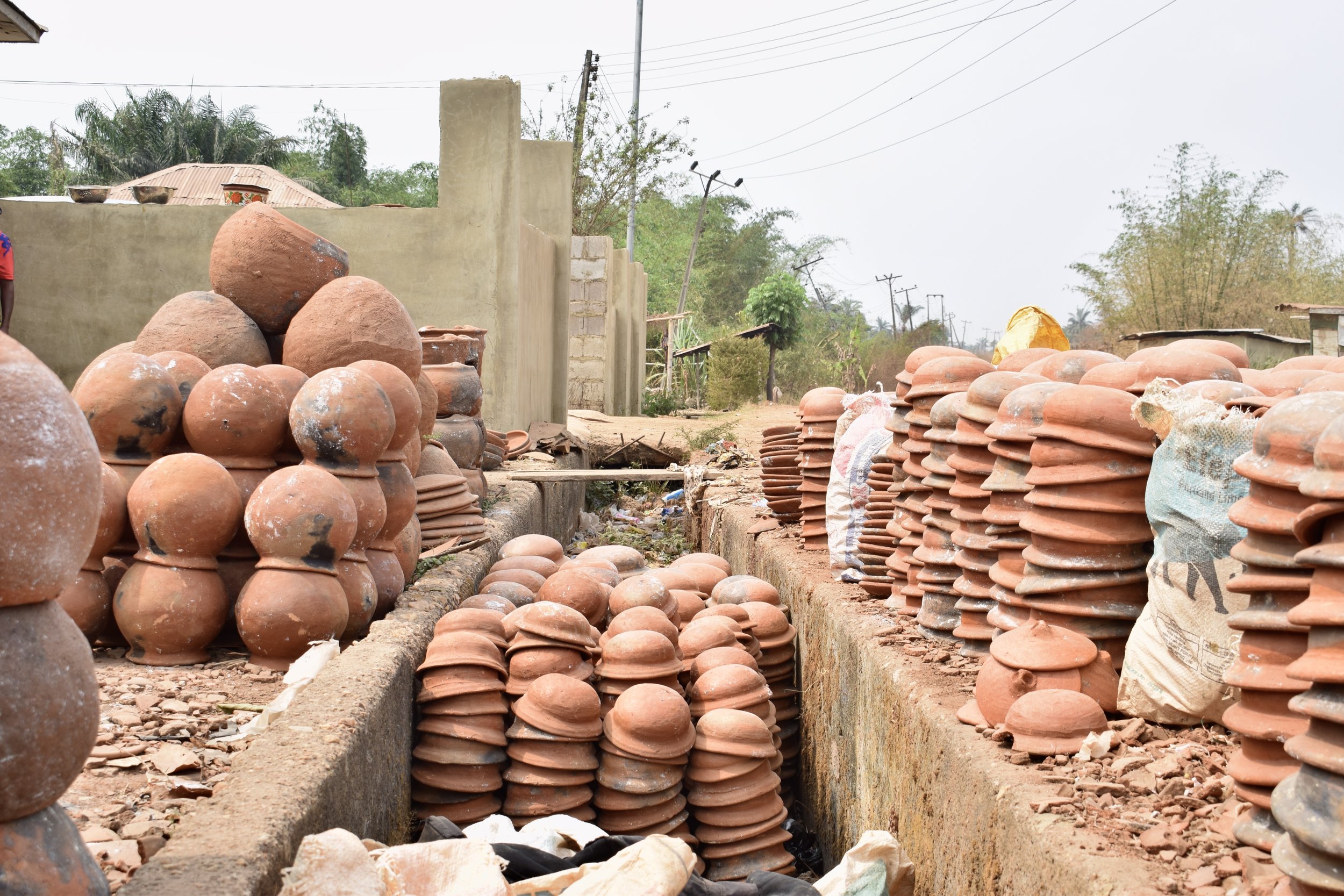
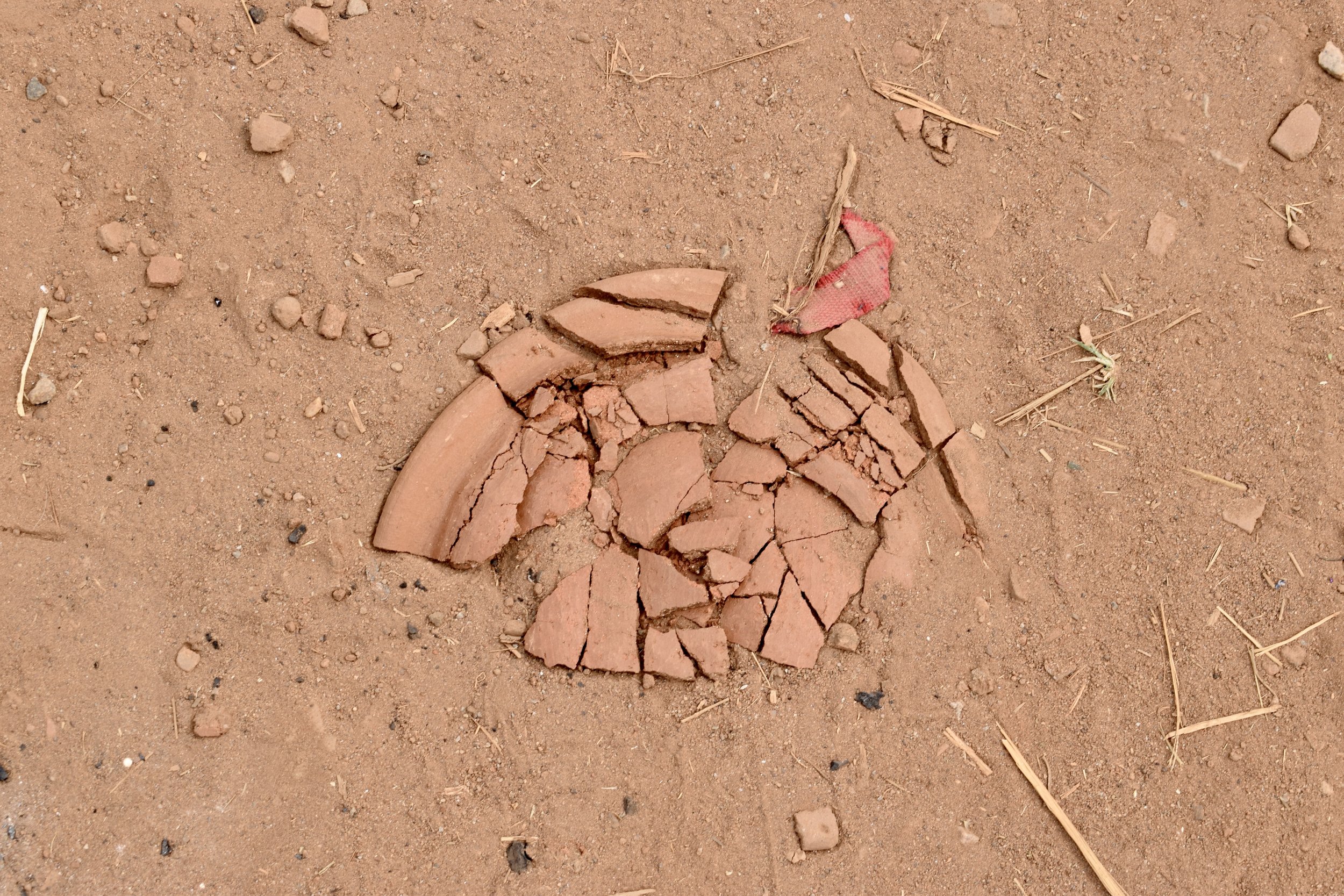
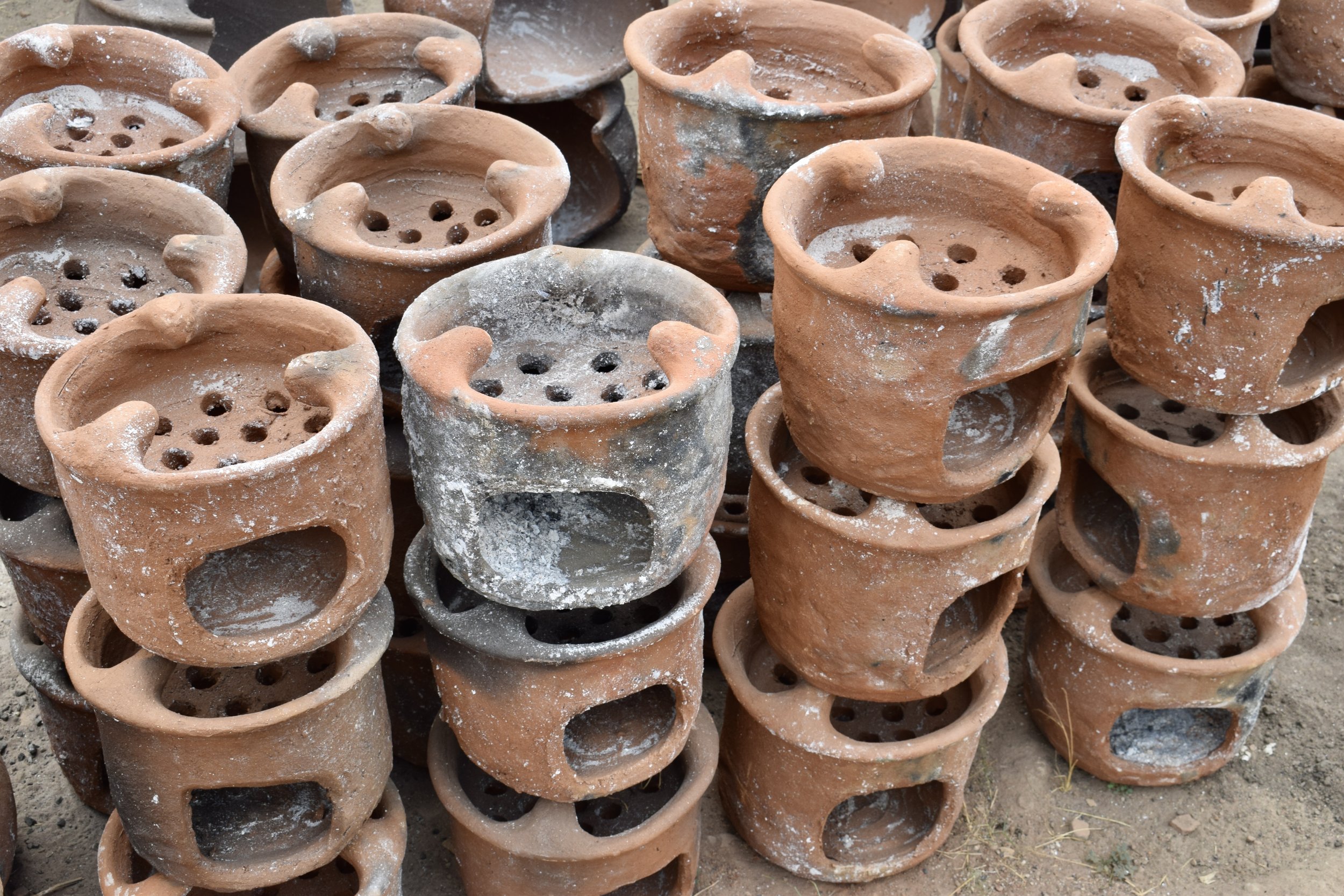
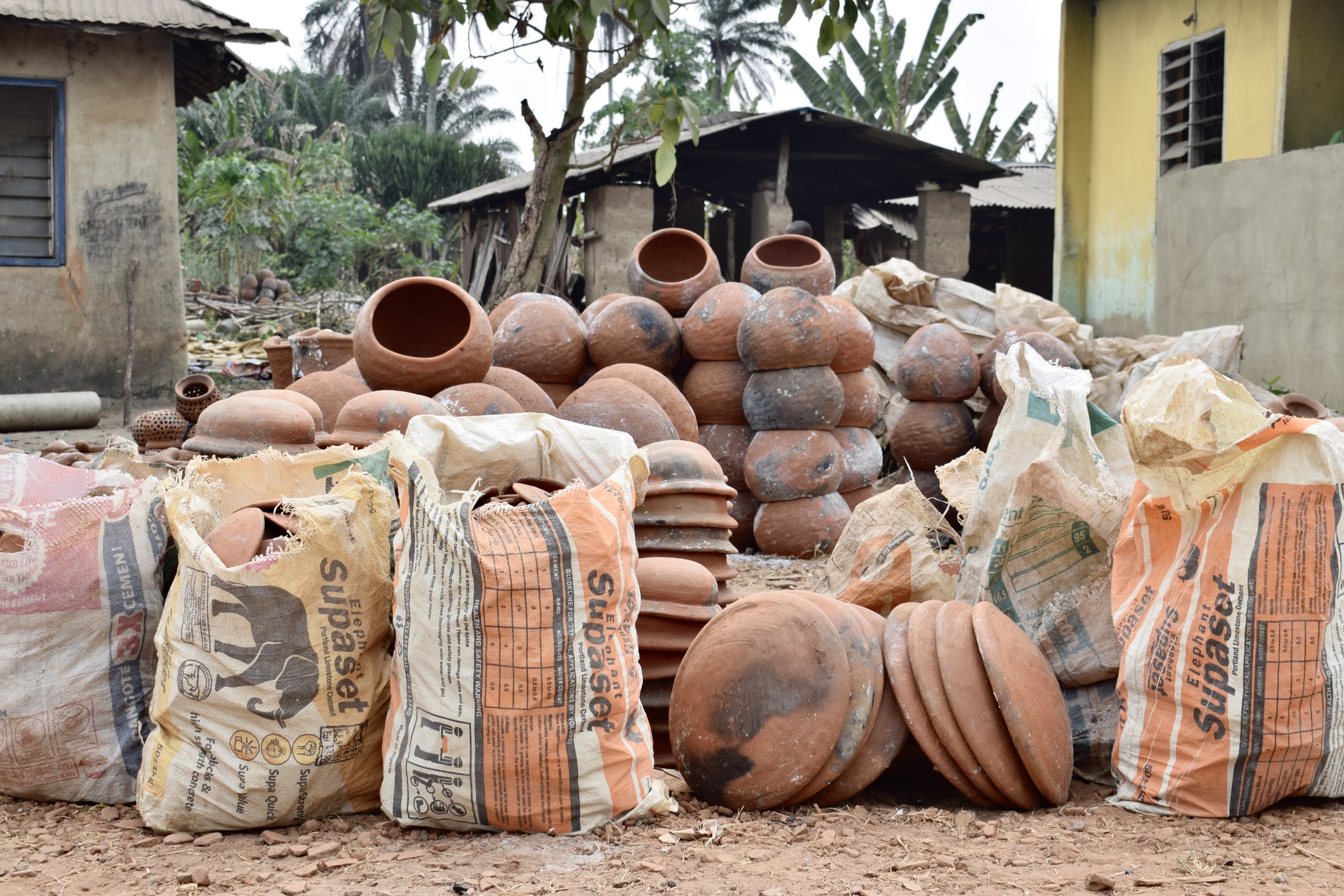
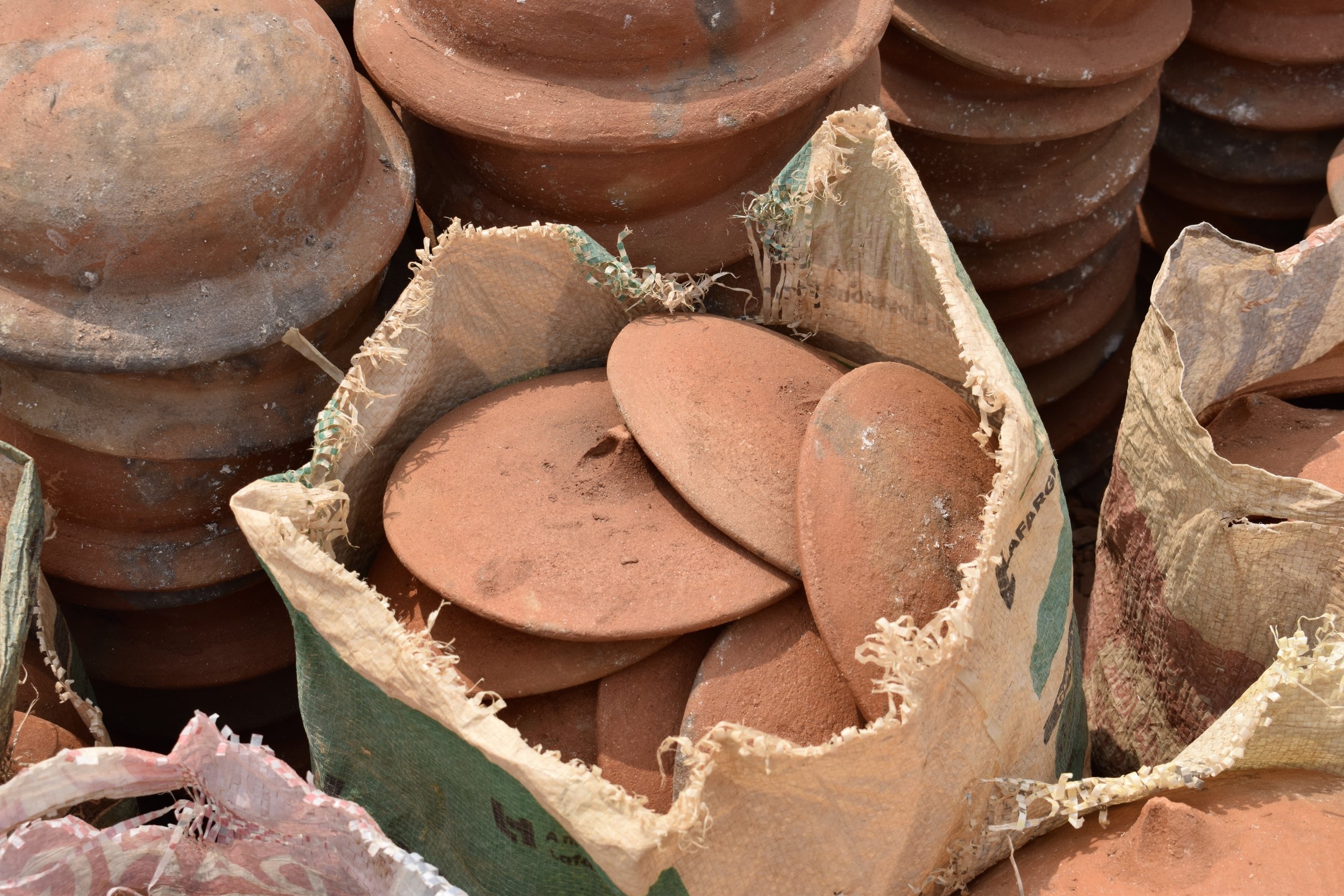
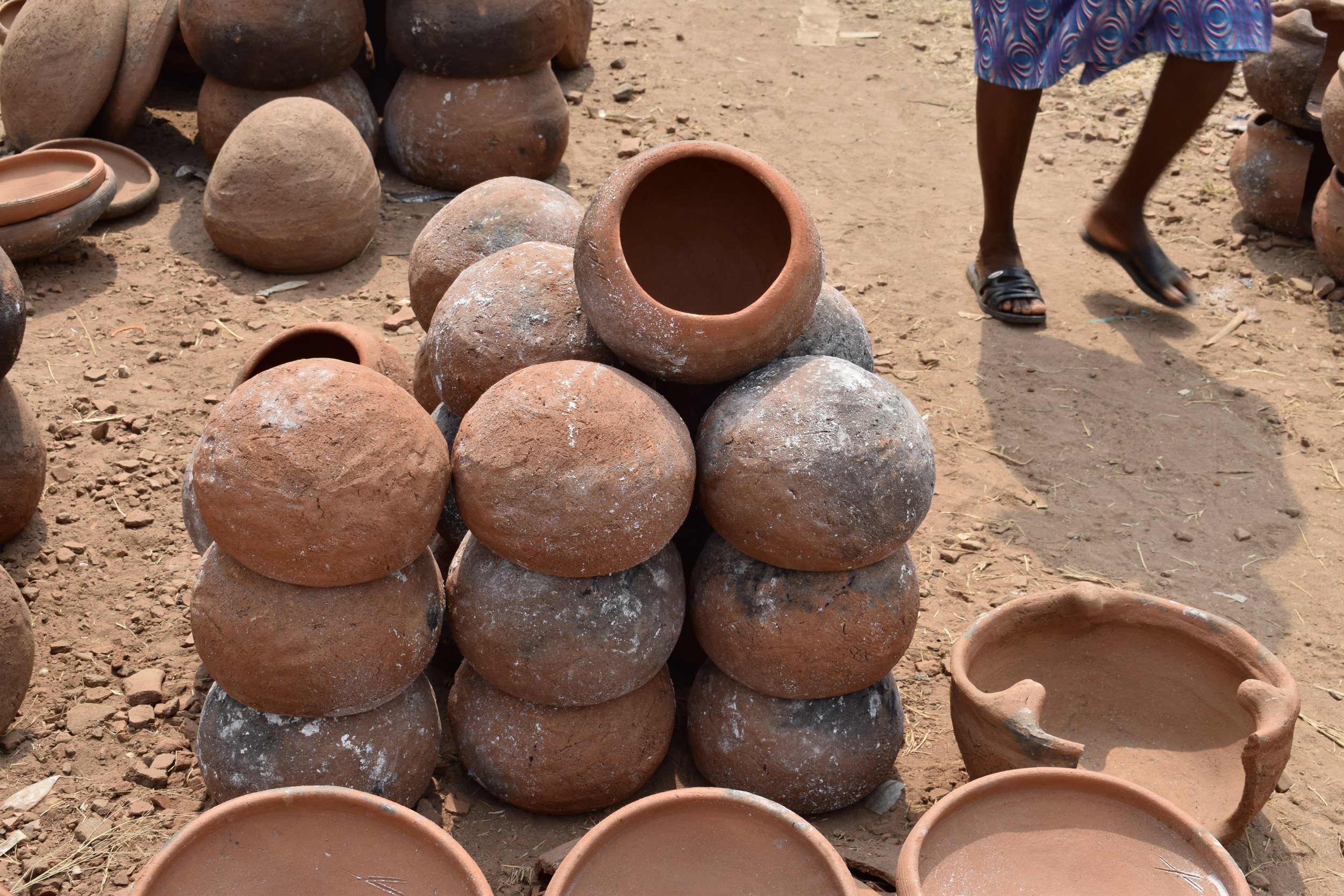

Obinrin àmó
〰️
Obinrin àmó 〰️
THANK YOU
Thank you to Ìyá Lẹ́kàn, her four sisters and their mother for welcoming us and sharing their knowledge so generously.
Thank you to Fúnmi, Residency Manager at G.A.S., for her interpreting while at Ìganran and for translating this archive into Yoruba
Thank you to Kavita Chellaram, Kó Gallery and G.A.S. Foundation for this life-changing and soul-nourishing opportunity.


